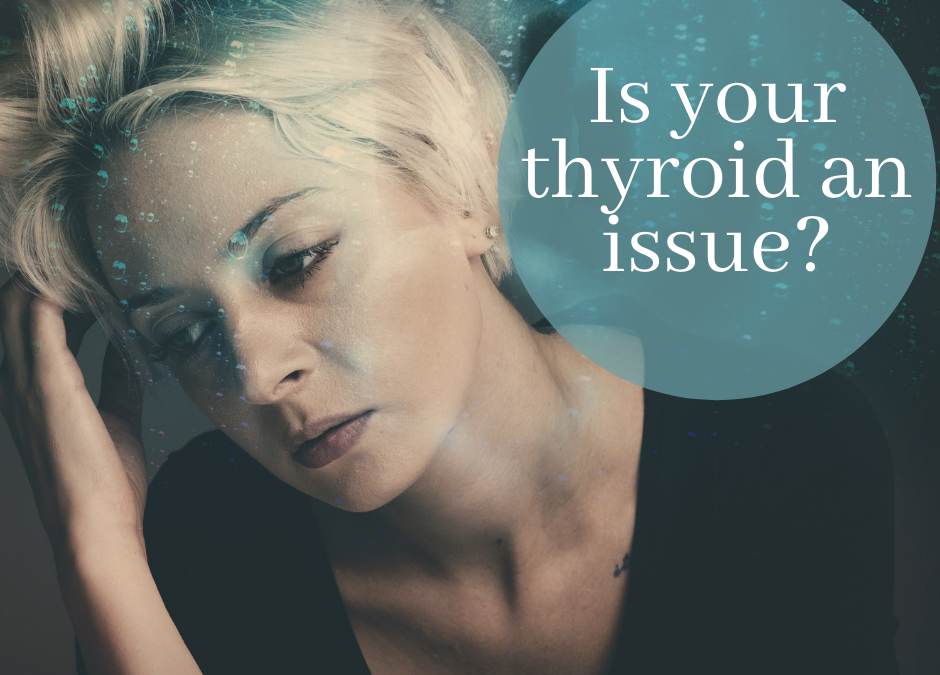Hashimoto’s Thyroiditis: Treating This Autoimmune Disorder With Naturopathic Medicine
A diagnosis of Hypothyroidism, or underactive thyroid, means that your thyroid gland is not producing high enough hormone levels to carry out its many roles in the body.
Thyroid hormones play roles in a wider range of physical functions than most of us realize, so when those hormone levels get out of whack, the entire body can be affected. There can be a number of reasons this happens, ranging from nutritional deficiencies to radiation, with one of the more common reasons being an autoimmune condition called Hashimoto’s Thyroiditis.
Hashimoto’s Thyroiditis Is More Common Than You May Think
Affecting approximately 10% of women over the age of 30, Hashimoto’s Thyroiditis is the most common cause of hypothyroidism. Some studies put the incidence of Hashimoto’s as high as five percent of the overall population.
What is Hashimoto’s?
The condition gets its name from the Japanese physician who first identified it in 1912. It’s important to understand that Hashimoto’s is an autoimmune disorder. In other words, with Hashimoto’s, your immune system somehow perceives that your healthy thyroid is a threat to your wellbeing, and attacks it in response.
Autoimmune disorders like this can be frustrating since they often don’t have a direct, easily identified cause. They can also be tricky to diagnose. In fact, up to 60 percent of people who have a thyroid issue don’t know that they have it.
Who Is At Risk Of Hashimoto’s?
Women
Certain conditions can make it more likely that you will develop Hashimoto’s. For example, women are from five to eight times more likely to develop the disease.
Previous Autoimmune Disease
Your risk is also highest at middle age. Having other autoimmune disorders (such as lupus, celiac disease, or rheumatoid arthritis) can also make you more vulnerable.
Gluten Intolerance
Some research has linked Hashimoto’s to diets high in gluten. Although gluten doesn’t directly cause Hashimoto’s, gluten consumption does seem to increase the risk for autoimmune disorders in general. And interestingly, people with celiac disease are three times more likely to have a thyroid problem.
Stress
Other research suggests a link between chronic stress and Hashimoto’s. This connection could be due to the interaction between stress and our immune systems.
What Are The Symptoms Of Hashimoto’s?
The symptoms of Hashimoto’s often build slowly, which is why they often go unnoticed. As the thyroid experiences more damage, many people find they become increasingly tired. In fact, overwhelming fatigue is one of the most common complaints with this disease.
You may also experience a long list of frustrating symptoms, including:
● Weight gain, fluid retention
● Muscle aches
● Thinning hair
● Dry skin
● Constipation
● Fertility problems
● Poor cold tolerance
● Depression, Anxiety, Irritability
● Memory issues
● Hoarseness
● Low libido
● Slow heart rate
● A lump at the base of the throat, due to an enlarged thyroid
Many of the symptoms listed above are easy to blame on other health issues – even simply growing older. However, the long term-effects of Hashimoto’s can greatly affect your quality of life. And over time, low levels of thyroid hormone can lead to elevated cholesterol levels. That’s why it’s important to seek help if you suspect Hashimoto’s.
How Is Hashimoto’s Diagnosed?
Many conventional medical doctors run just one test for thyroid problems – Thyroid Stimulating Hormone (TSH). However, because thyroid problems can be complex, the result doesn’t always provide a precise diagnosis. High TSH may well indicate that the body is trying very hard to stimulate an under-responsive thyroid gland, however, it doesn’t tell us why. And a normal TSH result does not rule out more complex issues.
For a thorough evaluation of your thyroid health, more in-depth testing is often required. After all, your body works as an integrated unit, and TSH is just one piece of the puzzle. Typically, we additionally test for thyroid antibodies, inflammatory markers, signs of infection, stress hormones, food sensitivity tests and digestive markers.
Help! I am Having Trouble Managing Hashimoto’s. What Can I Do?
Hashimoto’s is typically treated with a thyroid hormone supplement to restore the body’s levels. However, many patients have difficulty finding the exact level of supplementation to alleviate their symptoms.
A holistic approach aims to address the root cause of the autoimmune condition, in addition to supporting the thyroid and using thyroid hormone as needed. This usually means making improvements to your overall health and balancing other hormone levels to support the whole system.
Supplements For Hashimotos’s
Supplements that may help include:
● Selenium
● Vitamin B12
● Zinc
● Ashwagandha
Lifestyle changes To Support Thyroid Health
Good habits can have a positive effect on Hashimoto’s, including:
● Reduce the amount of sugar that you eat (and drink)
This includes sugar substitutes, which have been directly linked to Hashimoto’s. Artificial sweeteners can lower the number of “good” bacteria in your gut, which can negatively impact your immune system.
● Watch Your Gluten Intake
Gluten and autoimmunity are interconnected, so it is a good idea to reduce the amount of gluten in your diet. Quinoa and rice are both good replacements, as are gluten-free crackers made with flax seeds. Keep in mind that the goal is to add variety to the diet. Also avoid replacing all gluten products with highly processed high-starch substitutes.
● Focus on natural, high-fibre foods
Because of the important link between gut health and immunity, keep your gut in top shape by consuming enough fibre to keep things moving.
● Reduce stress
Yes, that’s easier said than done in today’s busy world! However, it’s also important to remember that looking after your own health (even if that means cutting back on your responsibilities) will ultimately make you better able to look after your loved ones and your other responsibilities. As the saying goes, you can’t pour from an empty cup, so taking care of yourself is step one in taking care of others.
Homeopathy and hypothyroidism
In addition to lifestyle and dietary changes and supplements, we can further individualize treatment by using homeopathic medicine. A study published in the 2014 journal Homeopathy found that both TSH and the thyroid antibody, anti-TPO, both normalized over the course of homeopathic treatment in children with either subclinical hypothyroidism or auto-immune thyroid. Research is growing in the field of homeopathic treatment and should be considered as a treatment option or adjunct.
If you recognize the symptoms of Hashimoto’s described above, or if you’ve been given a diagnosis but are having trouble managing your symptoms, let’s talk. Together we can get a handle on your symptoms so that you can start feeling like yourself again. Contact us to arrange your naturopathic assessment and get on a healing plan for your thyroid and overall health – 905-597-7201.
What is Prediabetes. Do You Have It?
Prediabetes is Very Common, Do You Have It? By Rahim Habib BSc, ND How many people do you know who have diabetes? It is estimated that 30 percent of people who have diabetes, do not realize it, it has not yet been diagnosed in them. However, when we think of...
Spring Detox Workshop
It’s Time to Cleanse: Spring Workshop Did you know that 5000 years ago, Ayurveda, the oldest form of organized medicine, recommended to cleanse and detoxify the body each and every season of the year! If we ever needed to detox, it’s right now. Take tap water as an...
Mend Your Mind
Mend Your Mind When we think about ‘the mind,’ we often associate it with our brain, our thoughts, our ability to reason and focus, our perceptions and judgments, and self-conciousness. However, researcher and author, Dr. Candace Pert, who wrote “Molecules of...
Being Good to Yourself
Being Good to Yourself February is a be-good-to-yourself month. It also just happens to be Heart Health Month. I have found that many people do not know what being good to yourself means. Most think it’s treating yourself, to reward yourself, and this is not wrong,...
Building Awareness
New Beginnings in 2010 The beginning of the New Year is usually a time for making and renewing goals, for reflection on what you want to see for your life, packaged into what can be done this year. I would like to suggest five key areas to work on throughout the...
Planning for Health
Planning for Health At this time of year there is a lot of planning for holiday celebrations in the workplace, among families, and friends. Rightly so, since we may not stop and positively interact with our loved ones and dear friends for much of the year. ...
Vitamin D and Cold & Flu Prevention
Vitamin D and Cold & Flu Prevention We all know about the connection between Vitamin D and how it improves calcium absorption, and thus bone health. But, over the past decade of research, new findings are showing that activated forms of vitamin D have incredible...
Natural Help for Psoriasis
Solving Psoriasis Of all of the skin problems people experience, psoriasis can be one of the most frustrating. It often starts with a terrible itchy scalp that keeps you awake nights…you try many skin products, only to find it can come right back with a...
Optimizing Immunity
Helping the Immune System Is More Than About Flu Shots...Plus My Top 12 Tips for Immune Balance Many people ask me about options/alternatives to taking the influenza shot each year. Since the flu shot is recommended mostly for people who are elderly, or have long term...



